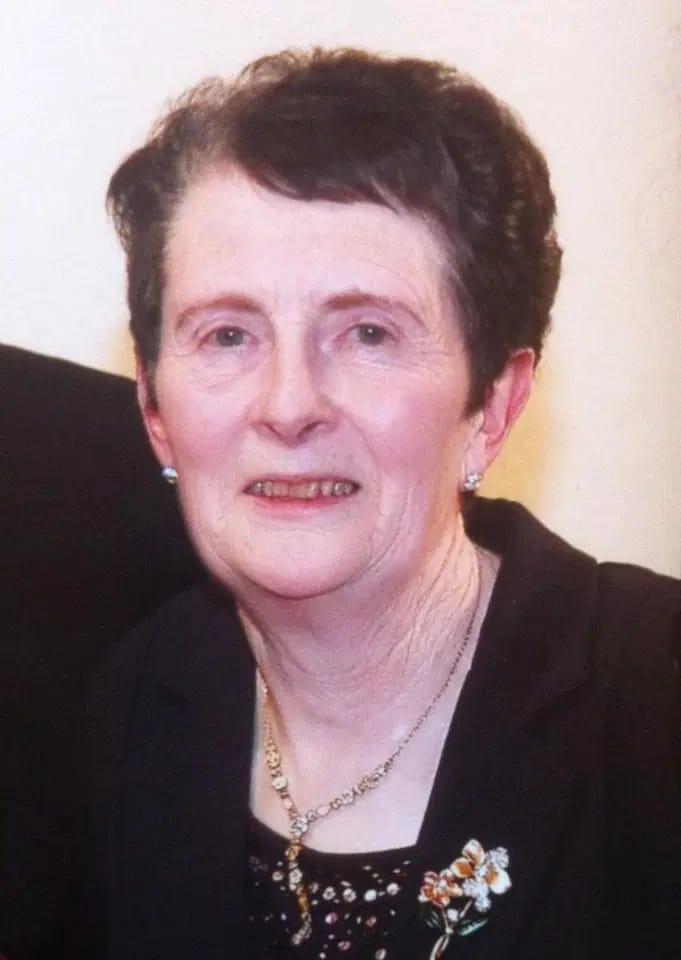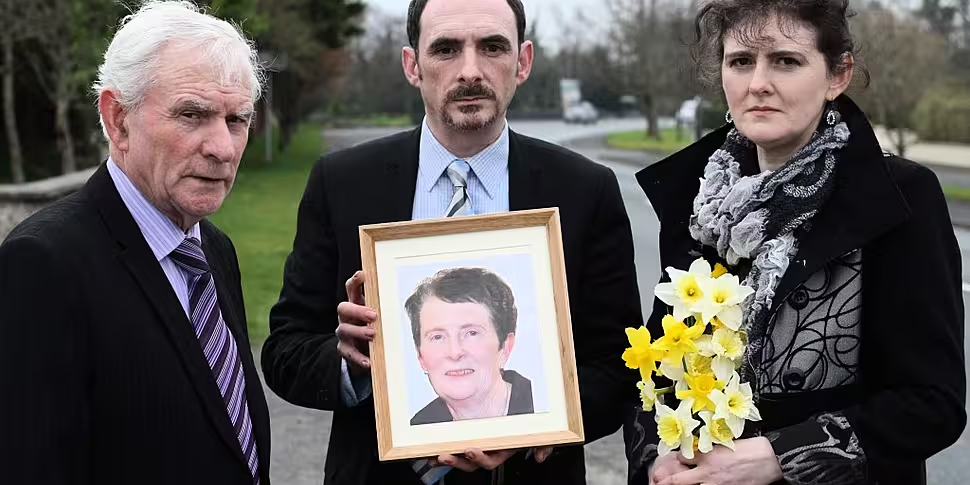The daughter of a woman who died after being told there was no ambulance available has said people should know that this is happening.
Davina Porter is the daughter of Maura Porter, who died after waiting for almost an hour for an ambulance.
Seven years ago Maura went for a walk and was hit by a car in Co Donegal.
She was left seriously injured with internal bleeding and head injuries.
 Maura Porter, who died after waiting for almost an hour for an ambulance in County Donegal.
Maura Porter, who died after waiting for almost an hour for an ambulance in County Donegal.Davina told Newstalk Breakfast they were told there were no ambulances available.
"She needed emergency surgery in a hospital, so we needed an ambulance to get her there.
"However when that 999 call was made that evening, there was no available ambulance in the whole of County Donegal."
"And when I did a Freedom of Information, I discovered that nine ambulances were on-duty - but shockingly, six were waiting outside Letterkenny Hospital waiting to discharge or offload patients into ICU.
"A number of those ambulances were waiting over two hours - but one of the ambulance was waiting, trying to discharge a patient to the hospital, for over five hours."
She said an ambulance was contacted in County Sligo "to make a two hour journey" to Malin Head.
'Nothing has changed'
She said waiting on the side of the road made the situation even worse.
"The inquest concluded that she wasn't given a chance at all - she needed emergency surgery, most people require treatment within the golden hour.
"It was two and a half hours after the accident - we're an hour away from the hospital - so when the ambulance arrives here it's another hour to get to the hospital.
"So it took over two and a half hours before she arrived at the hospital and it was just too late: she had lost too much blood on the roadside and she died.
"Her death is terrible, but the panic and the wait on the road has made it even worse".
"The whole night haunts us and has haunted us and it is very, very difficult to get over a death.
"But a death under such circumstances is a lot worse.
"We thought something positive may have come out of her death - we as a family tried to raise the issue of ambulance delays - to discover that nothing has changed".
Davina said that a lack of change is hard to take.
"It makes things very hard - so that's why it's important that people are informed: people need to know that this is happening.
"It has been happening for a long time, it continues to happen every day - it happened to us, it could happen to you.
"You need to start putting pressure on your local politicians, this issue needs to be highlighted.
"It's too late when it happens to you.
"I always thought that when you made that call an ambulance arrived, but your listeners need to know that it may not arrive".
FOI: Ambulance waiting times
According to Freedom of Information figures released to Newstalk, it took an ambulance over an hour to arrive at a life-threatening emergency 63 times in the space of three months.
The longest response time was almost two hours.
An ambulance is supposed to arrive at a life-threatening emergency in less than 19 minutes.
The majority of these calls are called 'Delta', which account for non-heart related issues.
Between April and June, the 19-minute target for these calls was met only 57% of the time.
For heart-related emergencies, known as 'Echo' calls, the target was met about 80% of time.
For 63 Delta calls, it took over an hour for an ambulance to arrive between April and June.
The longest was one hour and 51 minutes to a critical call in Louth - followed by nearly one hour and 43 minutes to an emergency in Tipperary, and almost one hour and 39 minutes to a case in Galway.
The National Ambulance Service says the average time for Delta calls during this period was 17 minutes and 40 seconds.
FOI reporting: Eoghan Murphy









